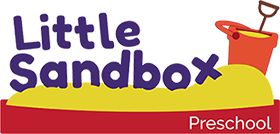Little Diggers
3 – 3.11 years old by August of the target school year
Digging into Discovery
Our Little Diggers are in a nurturing and stimulating environment where they can explore, learn, and grow. Play-based learning is central to the curriculum, with opportunities for hands-on exploration, sensory experiences, creative expression, and imaginative play.
The daily schedule is structured yet flexible, allowing for a balance of individual exploration and group activities. Activities are tailored to promote holistic development across various domains, including cognitive, social, emotional, language, and physical development. Our schedule includes Free Play and Exploration, Circle Time, Music and Movement, Storytelling, Literacy and Math (through small and/or large group activities), Art, Science Experiments, Learning Games, and Outdoor Play.
Benefits:
Socialization and Peer Interaction: The Little Diggers class offers valuable opportunities for children to interact with peers, develop social skills, and learn how to collaborate, take turns, and communicate effectively, laying the groundwork for positive social relationships.
Independence and Self-Confidence: Being in the Little Diggers class fosters independence and self-confidence as children learn to make choices, solve problems, and take on new challenges in a supportive and encouraging atmosphere.
Language and Communication Development: The class supports language, literacy, and communication development through exposure to rich language experiences, opportunities for conversation, storytelling, music, and vocabulary development.
Cognitive Development: Engaging in a variety of sensory and hands-on activities such as learning games and puzzles encourage exploration and experimentation, which develop problem-solving skills and critical thinking abilities.
Creativity and Self-Expression: The class stimulates creativity and imagination through art, music, pretend play, and open-ended activities that encourage children to explore, experiment, and express themselves. Engaging in art activities also have a calming and therapeutic effect on young children, helping them regulate their emotions. Art allows children to express their emotions in a safe and constructive way, fostering emotional awareness and resilience.
Fine and Gross Motor Skills : Activities such as drawing, painting, cutting, and pasting help develop fine motor skills by requiring precise hand-eye coordination and finger dexterity. These also help develop the hand strength and control necessary for writing. Playtime outdoors allows children to run, climb, jump, and explore natural objects, promoting gross motor development and physical fitness in a safe and supervised environment.
Home-School Connection: The Google Classroom helps parents stay connected with their child's educational journey. Through the platform, parents can stay updated on their child’s activities and learnings, important school announcements, and upcoming events, fostering a sense of involvement and engagement in their child's learning and development.
Early Intervention and Support: Little Sandbox provides support for children with developmental delays, learning differences, or special needs. The teachers work with families and therapists to identify individual strengths and challenges and implement strategies and accommodations to support each child's unique learning journey.


















